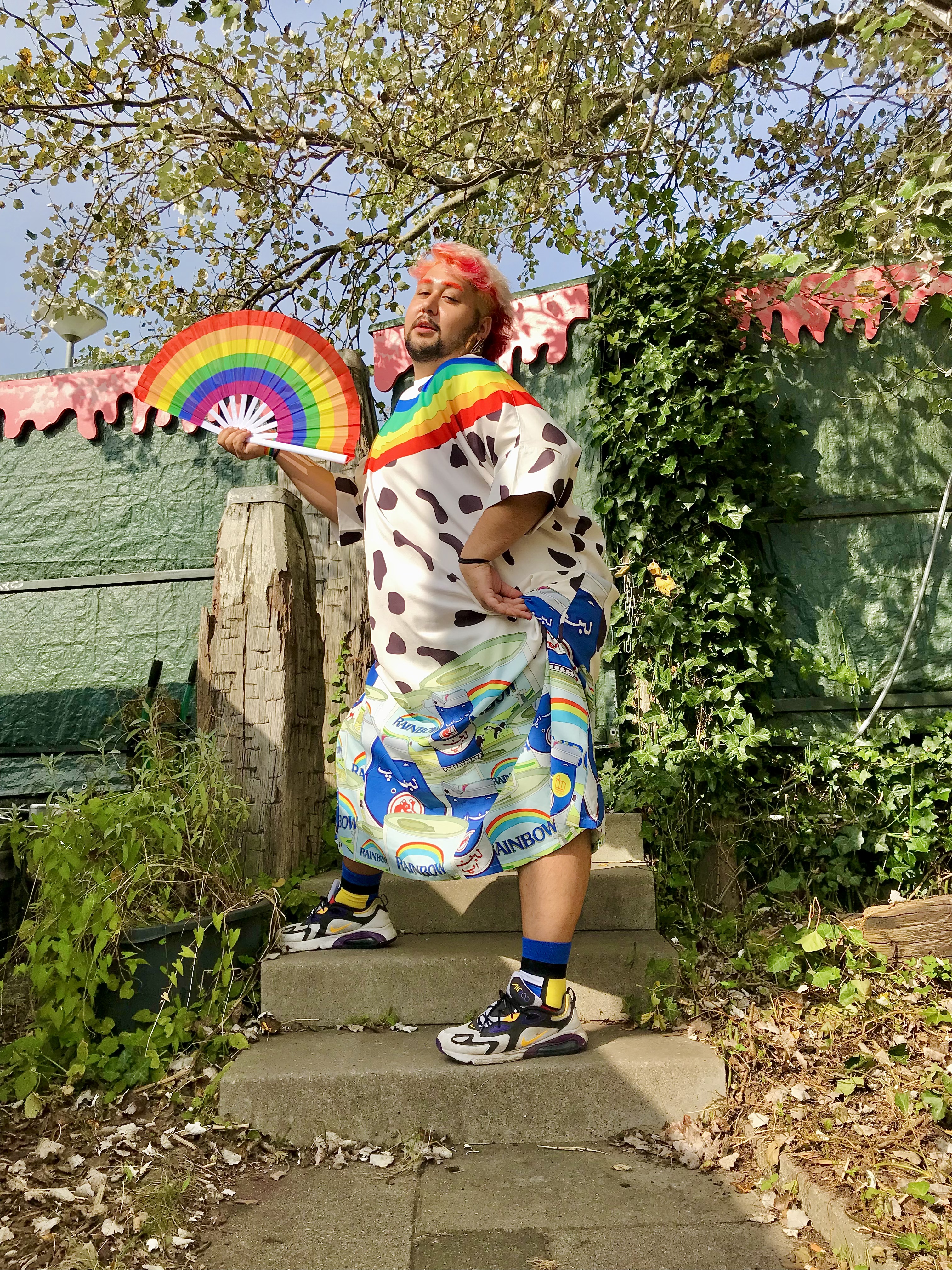Weekly Wednesday afternoons at the Gerrit Rietveld Academie in Amsterdam
Jan. 18, 25; Feb. 8, 15, 22; Mar. 8, 15
14:00—15:30, Talks and performances hosted by Bebe Berat Bebek and curated by Simon(e) van Saarloos, Fedlev auditorium
Simon(e) van Saarloos is not physically present. They make their appearance in a short video introduction. Sparring partner Bebe Berat Bebek acts as host, moderator and participant.
Scroll down to view the schedule!
Juicy Refuge: spaces to hide and spaces to shine
What is refuge? Juicy refuge does not ask such definitional questions. Instead, refuge is approached as a displaced space, a mourning site, a dancing body, a slippery slope. Expertise shows up as embodied knowledge. There is no stable actor, no clear subject, because those whom are colonized, marginalized and gentrified show up and hide (sometimes both at the same time) rich in refusal, stalled and creative with knowledge, desire and protest.
Instead of defining or grasping what the themes water, access / intimacy, fat, monuments, music, anger and refugee offer, this programme centralizes the watery rituals of Mikki Stelder and Oupa Sibeko, the access activism of Mira Thompson, Staci Bu Shea and Jeanette Chedda, Asha ten Broeke’s fat resistance and Berat Bebek’s celebrating drag, the questioning of monuments with Chimira Natanna Obiefule, Ehsan Fardjadniya and Aylin Kuryel, the angry performance art made by Khadija El Kharraz Alami and Mathieu Charles, the DJ scholarship of Lynnée Denise and musical time travel of Sky Deep, and the refugee experience of artists Sletlana and Ghaith Kween Qoutainy. Together, we centralize refuge as “a potential affective space of caring body”.
Simon(e) van Saarloos is the author of four books in Dutch, including a novel (De vrouw die) and an ethnographic court report about the “discrimination trial” of Geert Wilders (Enz. Het Wildersproces). Two of their books were translated into English: Playing Monogamy (Publication Studio, 2019) and most recently Take ‘Em Down. Scattered Monuments and Queer Forgetting (Publication Studio, 2022). They are currently working on Against Ageism. A Queer Manifesto (Emily Carr University Press, March 2022) and a theatre play about abortion, titled “De Foetushemel,” for Ulrike Quade Company, premiering April 2023 at Theater Bellevue, Amsterdam.
Van Saarloos also works as an artist and curator. Their most recent projects include Cruising Gezi Park (with Kübra Uzun), the spread of a mo(nu)ment, IDFA’s 2022 queer day Not Yet Yes and Through the Window an ongoing queer solidarity project between Turkey and the Netherlands, aimed to circulate funds among queer artists. They have participated in artist residencies such as the KAVLI Institute for Nanosciences, Deltaworkers New Orleans and Be Mobile Create Together at IKSV in Istanbul. Together with Vincent van Velsen, Van Saarloos curated the ABUNDANCE exhibition, (“We must bring about the end of the world as we know it” – Denise Ferreira da Silva) at Het HEM, Amsterdam in 2022. They currently pursue a PhD in Rhetoric at the University of California, Berkeley.
Bebe Berat Bebek is a trans non-binary actor, artist, creator, performer, organizer, serotonin source, social butterfly and a professional fat. Almost as a bridge between millennials and genZ they were born in the year '99 and were almost always out of the norms set by society. They were born and raised in Turkey but life led them to the Netherlands in 2020. While studying chemistry at Bogazici University, along with socio-political experience from their social circles, they started to be more visible as an activist and as a queer person. Within their previous experiences from theater, they started to lean more into performance art and drag and came across with other disciplines such as ceramic, painting, and embroidery. Having a curious mentality, they let themselves fly through any and every aspect of art and learning through different perspectives. Falling down so many times throughout their life, they're familiar with the feeling of the ground and now refusing to accept the norm of 'being obliged to suffer' towards queer people and they believe it is time to reflect, retake and recreate.
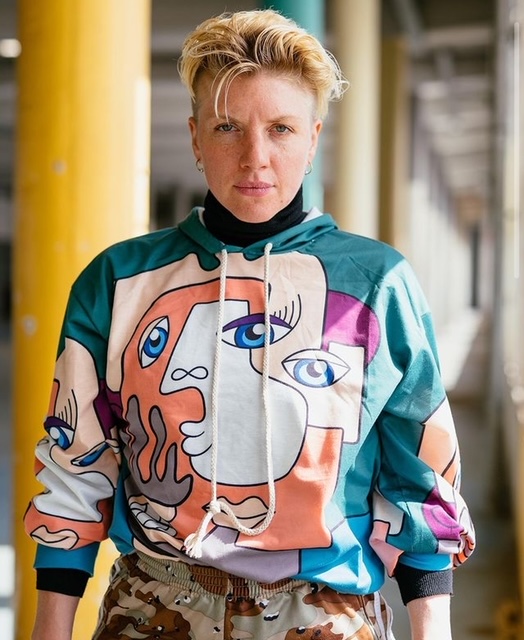
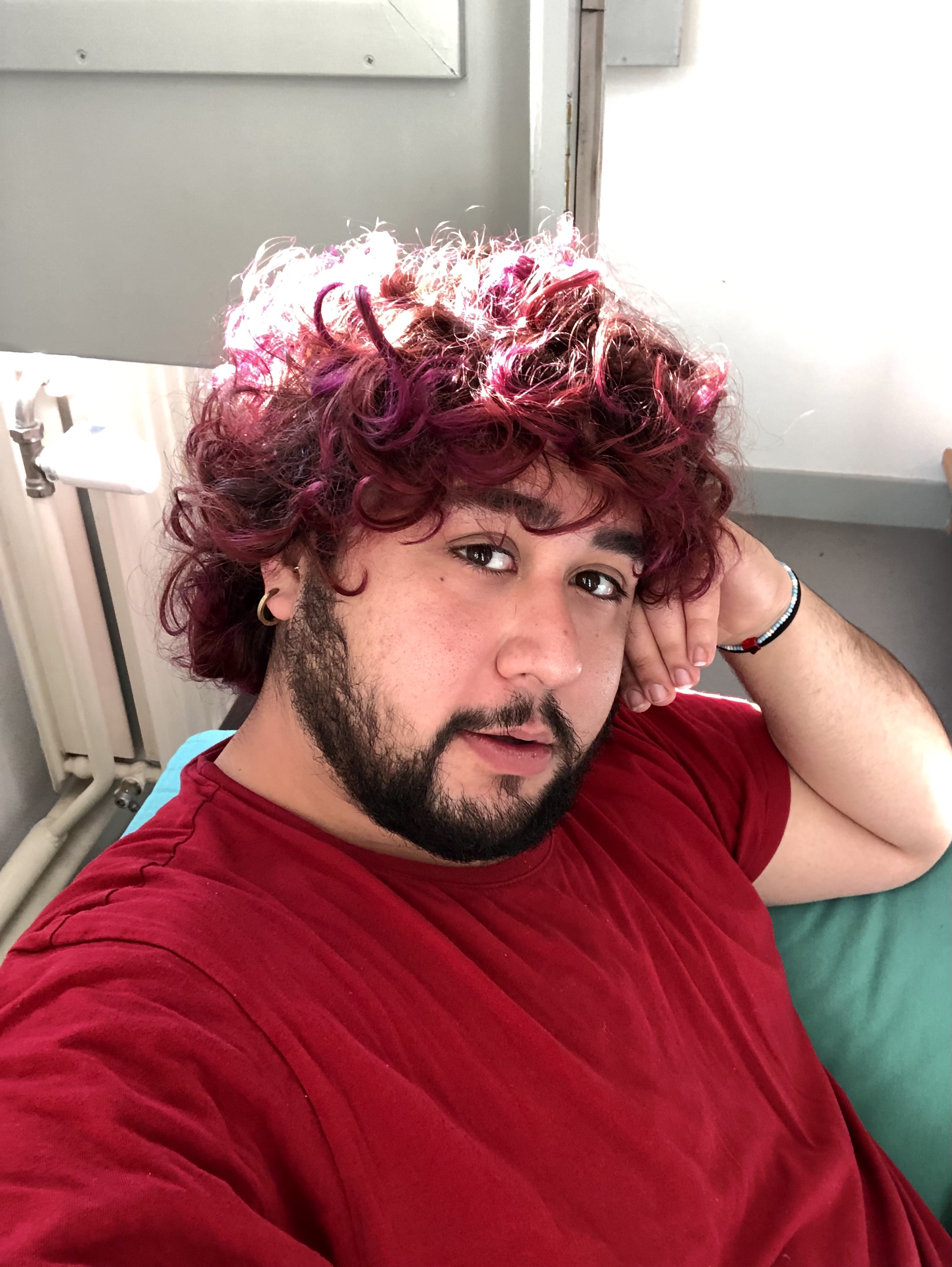
Mikki Stelder,
Oupa Sibeko
Water can be a place of refuge, while also holding layers of violence. Water might serve as an escape route, but also always serves violent trade and border control. Scholar Mikki Stelder shares a talk about the thingification of the ocean and the shore, showing how our thinking about the ocean has been colonized.
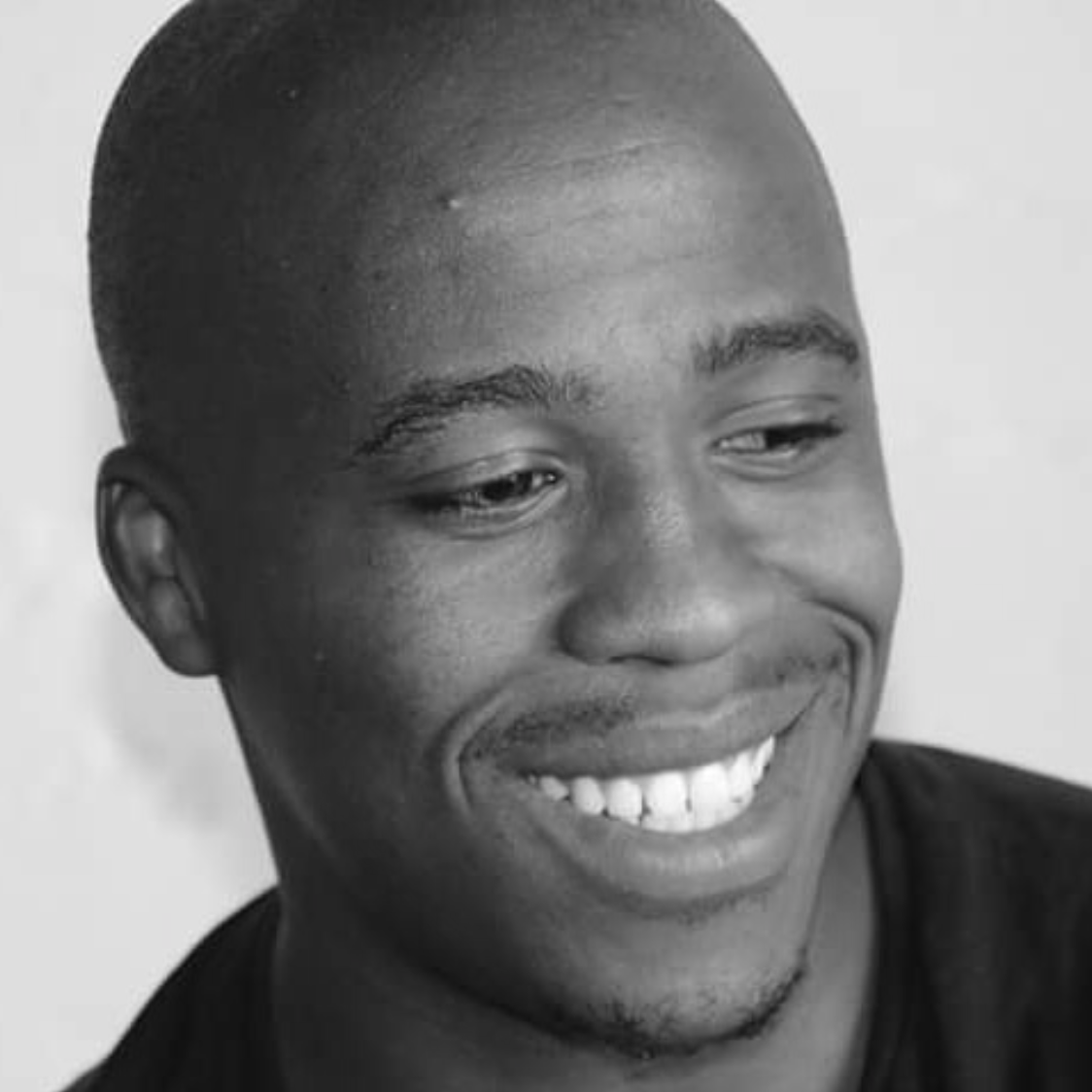
Performance artist Oupa Sibeko will take us under water through a sonic scape and the image of a bird taking flight. This performance, PILGRIMAGE TO UHURU, first started developing in Namibia in 2017, addressing refugees taking flight to Namibia and Botswana from Zimbabwe.
Oupa Sibeko (b.1992) is an interdisciplinary artist whose work move between theatrical, gallery, scholarly and other public contexts, overtly dealing with matter and politics of the body as a site of contested works. Enabling opportunities for affective and relational encounters using ritualistic performance and play, he seeks to critically engage approaches to the body, particularly the black male body, the history of representation and the ways in which certain subjectivities have been (and are) figured, (black) pain, (black) spectacle, (black) negation, and the ethical implications of reimaging and re-enacting pain.
Sibeko was awarded a Mail & Guardian top 200 and David Koloane award in 2019. He has taken part in group and solo shows in Namibia at the National Art Gallery of Namibia, Wits TPO Gallery, Wits Art Museum, Room Gallery, Melville Art Project, Greatmore Studios in Cape Town, The Freezer Hostel and Theatre in Iceland and Art Room in Parkhurst. In 2021, Oupa graduated with a Master of Fine Arts from the University of Witwatersrand, whilst performing in various exhibitions both locally and abroad. Sibeko first performed Black is Blue at the University of Witwatersrand in 2019, then again in 2021 at Nel Gallery in Cape Town, as well as La Frische Bell di Mai in France and the National Arts Festival in Makana and currently showing at Johnson Museum in New York as part of Cornell Biennale 2022. In the beginning of 2022, he joined Berman Contemporary as an associated artist.
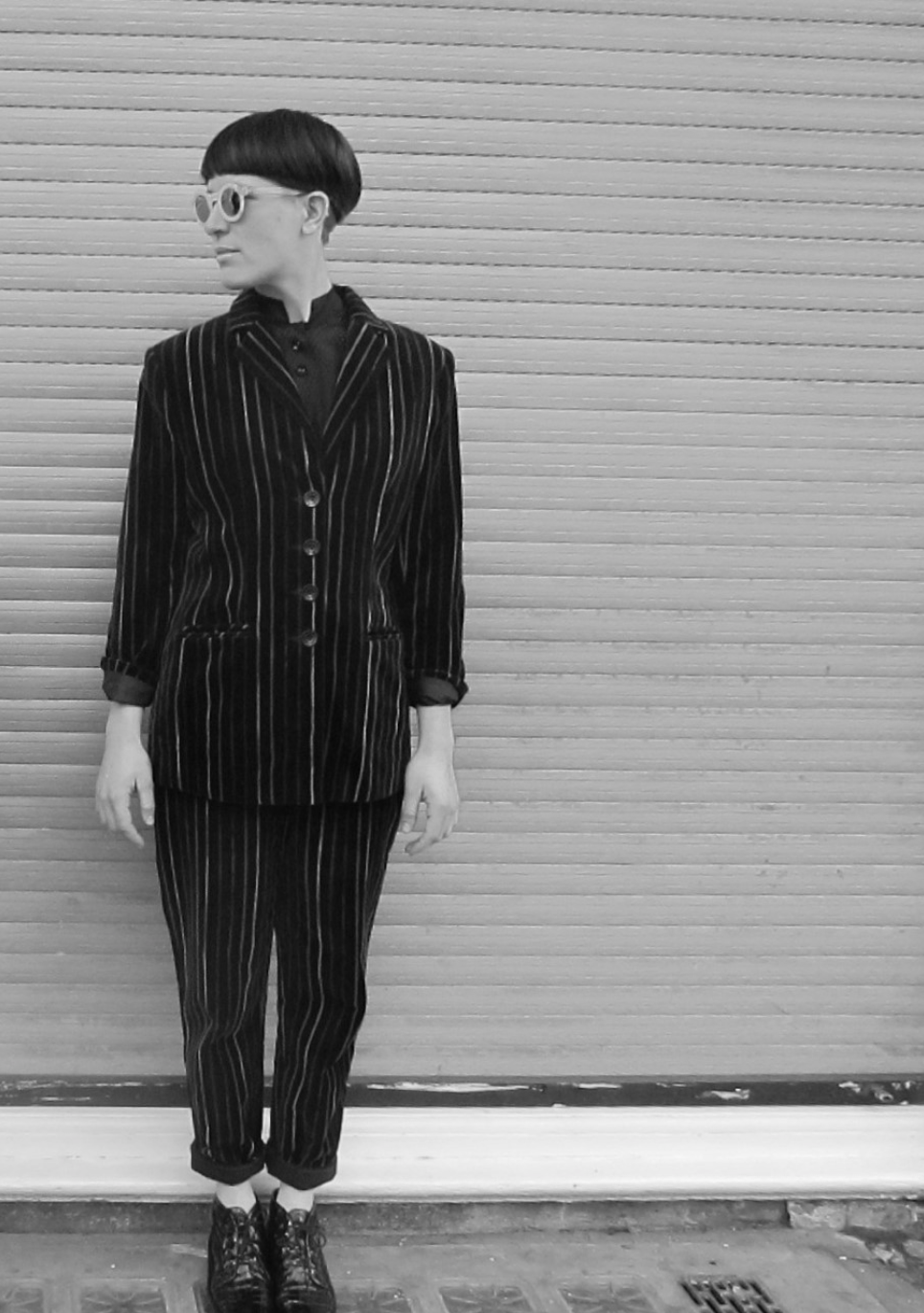
Mikki Stelder (they/them) is an interdisciplinary researcher and writer fascinated by the question how to write with, for, alongside, through oceans and water. They received a Marie Skłodowska Curie postdoctoral fellowship for the project Maritime Imagination: A Cultural Oceanography of Dutch Imperialism and its Aftermaths. Their work has appeared in journals such as Postcolonial Studies, Feral Feminisms, and Radical History Review. Stelder co-curates the Oceans as Archives series, which brings together scholars, artists and activists working on oceans from anticolonial, anticapitalist and feminist perspectives. They are a lecturer in gender and postcolonial studies at Utrecht University and the Sandberg Institute. Personal website: www.mikkistelder.com Blog: Finger in the Dike! Oceans as Archives: www.oceansasarchives.org
Lynnée Denise,
Sky Deep
the uses of music, Lynnée Denise
Sonic Beam Time Machine, Sky Deep
We would like to invite you for Wednesday themed “Music”. Music as an archive, a beat to an important personal moment, music as a manifesto, music as a place to hide and grieve but also to shine and move listeners to protest. Music as a space and body. Artist, scholar, writer and DJ Lynnée Denise will talk about what it means to practice “DJ Scholarship”. Musician, DJ, game creator and film director Sky Deep will contribute a performance: Sonic Beam Time Machine.
Lynnée Denise is an artist, scholar, writer, and DJ whose work reflects on underground cultural movements, the 1980s, migration, theories of escape, and electronic music of the African Diaspora. Denise coined the phrase "DJ Scholarship" to re-position the role of the DJ from a party purveyor to an archivist, cultural custodian, and information specialist. Lynnée Denise was the Sterling Brown '22 Distinguished Visiting Professor of Africana Studies at Williams College and is currently a doctoral student in the Department of Visual Culture at Goldsmiths University of London.
From launching a label, curating a festival to producing award-winning queer porn films, Sky Deep is much more than a DJ/Producer. She has been a touring DJ/Musician and audio technician for the last several years having worked as a live multi-instrumentalist on tour with Peaches on the 2019 OOPs tour. Additionally, Sky is a Educator, is designing virtual reality game and has her own streetwear clothing brand.
Asha Ten Broeke,
Bebe Berat Bebek
Fat does not necessarily have to be a refuge or hiding space from a sexist patriarchal society, as is suggested in Fat is a Feminist Issue, but fat phobia does encourage the marginalization of fat joy, fat voices, fat stories and fat knowledge. On this Fat focused Wednesday, we centralize fat as a politic of refusal and celebrate fat as knowledge about the world and oneself. Writer and op-ed columnist Asha ten Broeke gives a talk titled “It hurts to exist like this: looking for safety in a fatphobic society.” Berat Bebek (Bebe) shares a performance.
“What is fat? What am I? Why does everyone look different towards me? What is wrong with me?” It’s hard to navigate through an endless cloud of questions especially if you’re busy growing up at the same time. Bebe will take us through a journey of questioning: asking questions to ourselves, to the system, to the world, so we can reclaim, so we can decolonise and unlearn, so that we can free up space for ourselves, our experience. All while our body is along the way as a part of us instead of being an apart piece as we experience a lot on a daily basis.
Asha ten Broeke (1983) is a writer and op-ed columnist for De Volkskrant. She has authored three books, among which Eet mij (with biologist and science writer Ronald Veldhuizen), which included an extensive chapter on the stigmatization of fat people. Since then, she has written many articles and columns on the subject, combining her personal experience as a fat woman and the science about the harms of fatphobia to call attention to discrimination and advocate for the right to stay fat and be loved, respected and treated well in the body you have, not the body society whishes you had. When Asha finishes her fourth book, she plans to start working on a book for parents of fat children, to give them the resourches they need to help themselves and their children resist fatphobia and stigmatization, and learn about self-compassion and body respect instead.
Bebe Berat Bebek is a trans non-binary actor, artist, creator, performer, organizer, serotonin source, social butterfly and a professional fat. Almost as a bridge between millennials and genZ they were born in the year '99 and were almost always out of the norms set by society. They were born and raised in Turkey but life led them to the Netherlands in 2020. While studying chemistry at Bogazici University, along with socio-political experience from their social circles, they started to be more visible as an activist and as a queer person. Within their previous experiences from theater, they started to lean more into performance art and drag and came across with other disciplines such as ceramic, painting, and embroidery. Having a curious mentality, they let themselves fly through any and every aspect of art and learning through different perspectives. Falling down so many times throughout their life, they're familiar with the feeling of the ground and now refusing to accept the norm of 'being obliged to suffer' towards queer people and they believe it is time to reflect, retake and recreate.
Chimira Natanna Obiefule & Ehsan Fardjadniya & Aylin Kuryel
Refugee Monument, Ehsan Fardjadniya
Weeping Marx, Aylin Kuryel
all god's chillun got wings... rhythm to push away the blues, Chimira Natanna Obiefule
Monuments can be a space of refuge, offering a place to gather and hide. Monuments can also agitate and push us to be on the run, away from the normative discourse that welcomes some bodies and stories over others. Commemorative practices and counter archival work can create never recognized spaces, and change how we know and feel a place. Ehsan Fardjadniya, Aylin Kuryel and Chimira Natanna Obiefule each propose a monument for the city of Amsterdam.
Aylin Kuryel is a lecturer at the Literary and Cultural Analysis department at the University of Amsterdam. Her research areas are nationalism, image politics, aesthetics/resistance, and politics of emotions. She is the co-editor of Cultural Activism: Practices, Dilemmas and Possibilities (Rodopi, 2010), Resistance and Aesthetics in the Age of Global Uprisings (Iletisim Press, 2015), Being Jewish in Turkey: A Dictionary of Experiences (Iletisim Press, 2017) and Essays on Boredom (2020, Iletisim Press). She has been involved in projects as an artist and is working as a documentary filmmaker. Among her documentaries are Taboo (2009), Image Acts (2015), Welcome Lenin (2016), Heads and Tails (2018), CemileSezgin (2020), The Balcony and Our Dreams (2020), A Defense (2021), Translating Ulysses (2022), The Thing That Goes Through Everything (2022), Defense (2021), The Balcony and Our Dreams (2020).
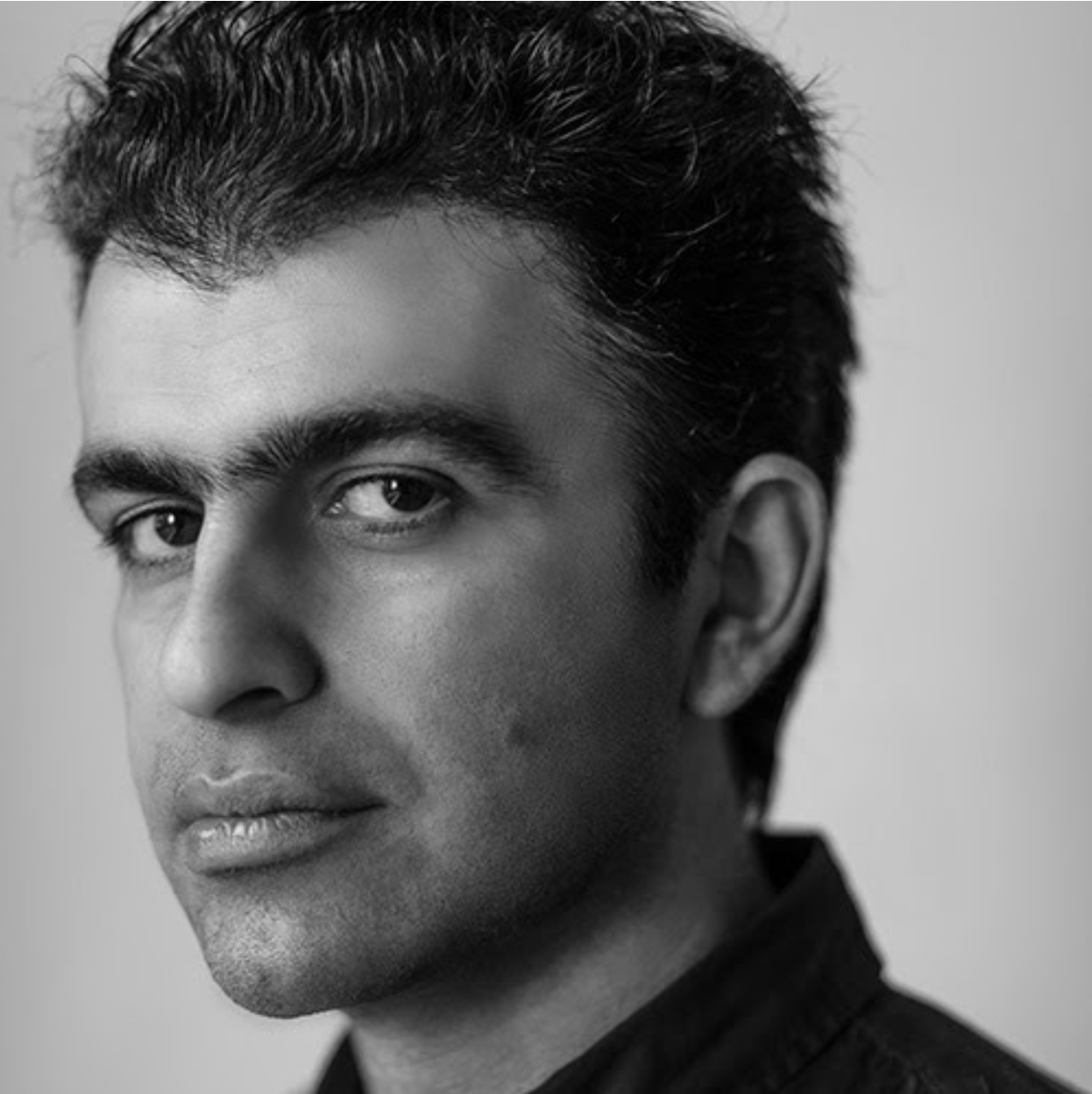
Ehsan Fardjadniya: In my 10 years of experience as a performance artist, I have developed a method of emancipatory art whereby socio-political relations can be treated as performative practices to impact larger political issues. Departing from Situationist art practices where interventions are temporary and from the outside, in my method I make interventions from within where my body is situated. Art and activism merge in my work as a reflection of the politicisation of my body as a person of colour and a political exile. I am particularly interested in issues of borders and migration. Because of my personal experience as a refugee and my struggles with institutional racism, precarious migration stories go through my body, making it an archive that howls throughout my art. My name is Ehsan Fardjadniya. I am a visual and performance artist. In 2000, due to my political cartoons, I was exiled from Iran and consequently applied for refugee status in the Netherlands. I graduated from the Royal Academy of Fine Art in The Hague in 2006, followed by a two-year Master degree on art as politics with a particular focus on refugee rights at Goldsmiths University of London. I have since worked on various collaborative and solo performances, which combine various techniques such as theatre and storytelling with video-making practices. all god's chillun got wings... rhythm to push away the blues.
Chimira Natanna Obiefule: Da Beyond. Starting as my own centre, I prioritise a labour of love at the very core of my worlds not works. Following the ancestor Audre Lorde, I embrace the erotic--the emotions guided by my deepest intuition for joy--as the source of my knowledge production. Additionally leaning on the support of my sistah Saidiya Hartman’s ideas on the innate revolutionary quality of the beauty of Black ordinariness in the face of Black fungibility and social death, It is my erotic that allows for the actualisation of freedom within the very waywardness of the poetry of my existence. Da Beyond. I am interested in the beyond of our physical space and language, the materialisations of oppression. I am interested in the non-language of freedom. Soul!! I am interested in the Black forms of expression that enable transcendence and nu language, world destruction and renewal. I am interested in the very strategy of my being, the undeniable nature of my intuition to rise, to live, to laugh and to love. Da Beyond.
My practice additionally draws from Alice Turiya Coltrane, John Coltrane, Toni Morrison, Leopold Sedar Senghor, Frantz Fanon, Ben Okri, My Ancestors and Chi, my personal portion of god.
Staci Bu Shea & Mira Thompson,
Jeanette Chedda
Access / Intimacy approaches accessibility not as a protocol, rule or law, but as a potential to create and host intimate spaces. Intimacy shapes accessibility, accessibility shapes intimacy. What is an ableist world missing out on, because of the exclusion of disabled people, but also because of its negation of crip knowledge, crip experience and intimacy? Access / Intimacy echoes disability justice activist Mia Mingus' term access intimacy, referring to the “elusive, hard-to-describe feeling when someone else gets your access needs,” but the / also breaks it apart, underlining the ways in which we are not yet accessible, not yet intimate.
Singer and disability activist Mira Thompson and curator and death companion Staci Bu Shea sext/fantasize about entering the Rietveld Academie together. In A lifetime of inaccessibility and the violent effects on bonding and intimacy, model and accessibility activist Jeanette Chedda shares how daily architectures obstruct her from experiencing intimacy and touch.
Mira Thompson is a singer/songwriter, teacher and researcher. Her music choices are ones which contain a narrative and sometimes have a strong visual component. The aspect of language is especially important to her music. She is interested in the effect of sound on the listener. For example, she has even used the sounds of her wheelchair in her music.As a researcher, Mira also writes on the subjects of disability issues and disability justice. As a teacher she seeks to combine her background in singing with topics such as accessibility in the arts, intersectionality and disability justice.
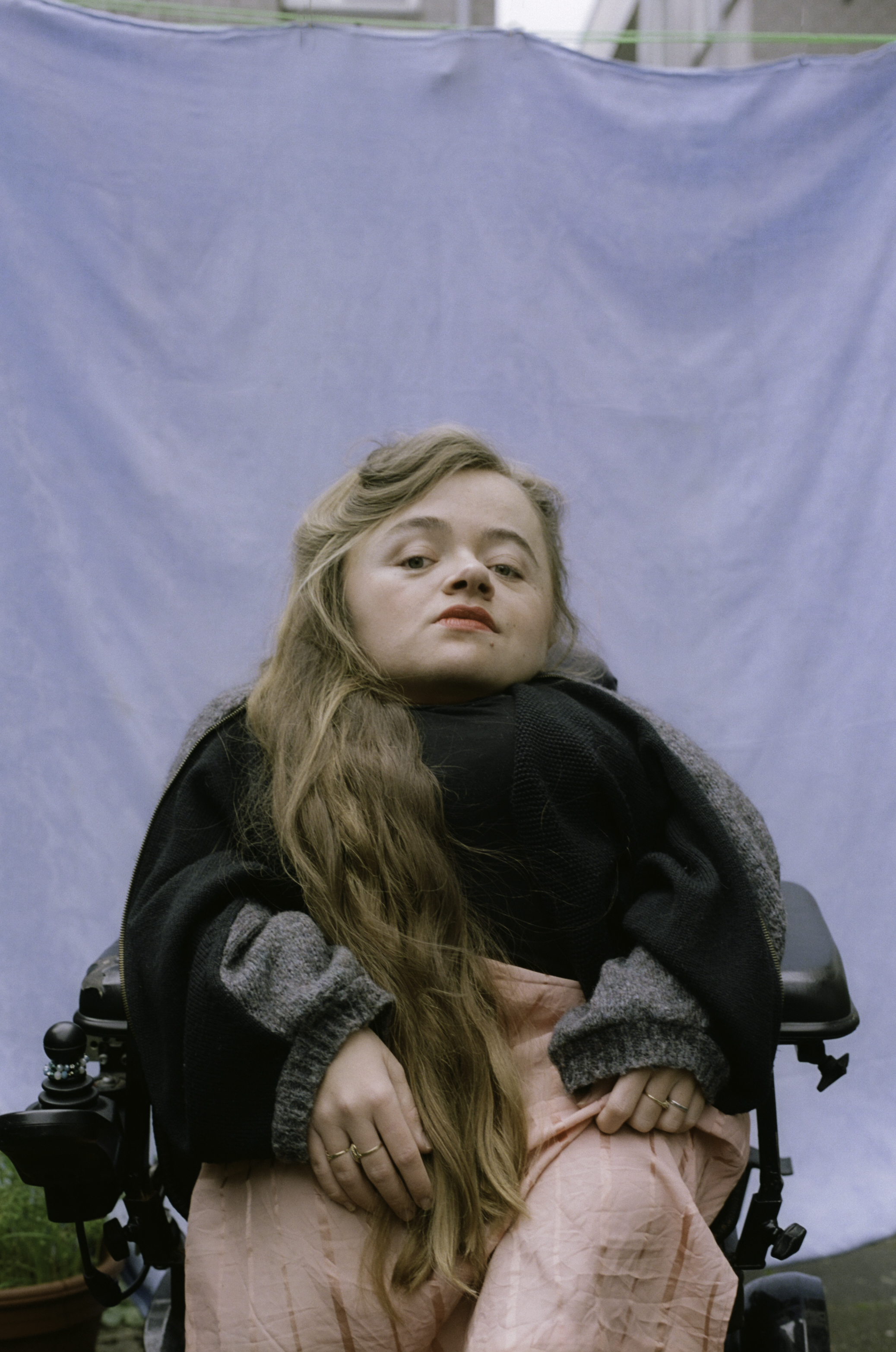
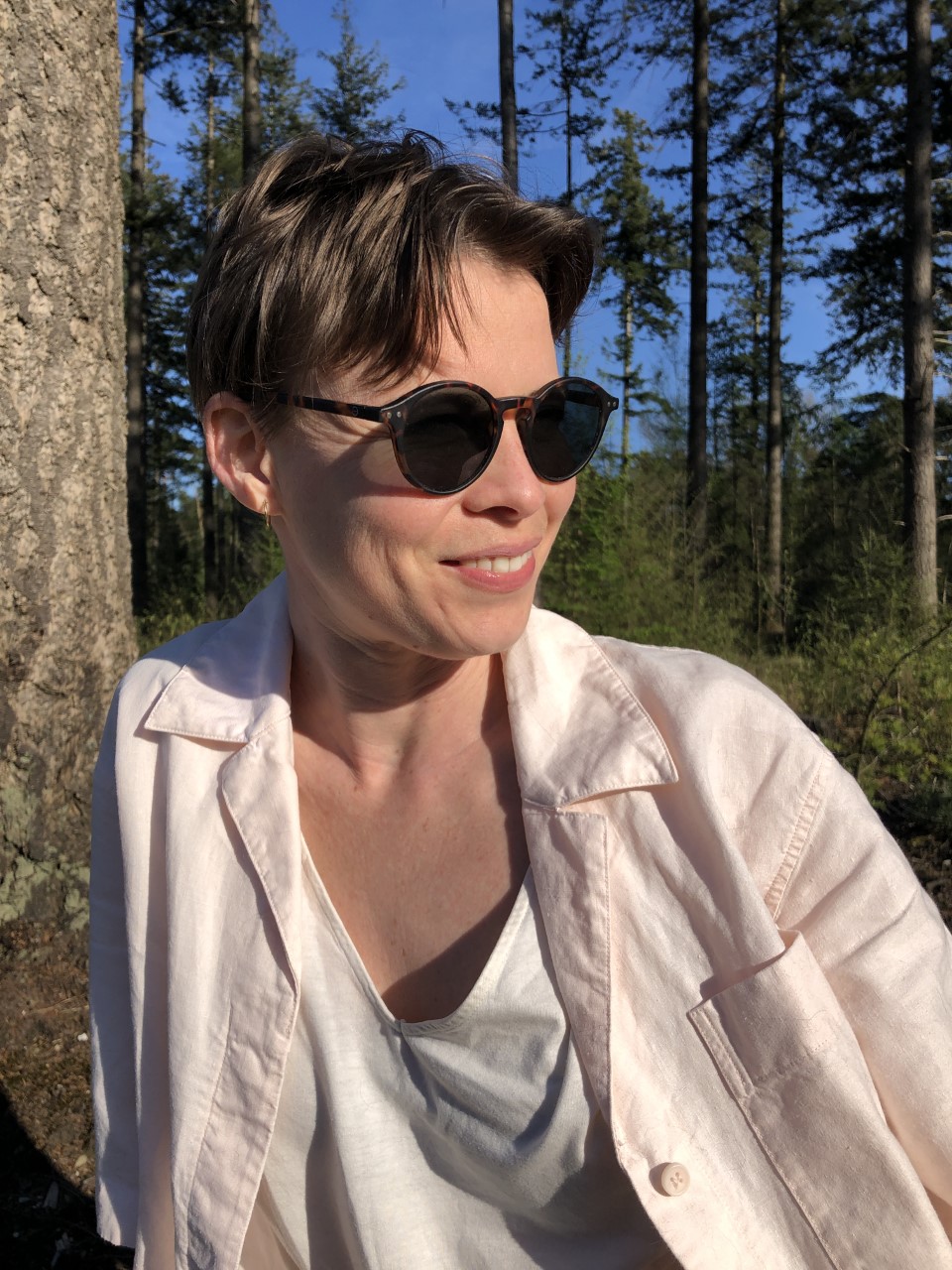
Staci Bu Shea (b. Miami, 1988) is a curator, writer, and death companion based in Utrecht, the Netherlands. Broadly, Bu Shea focuses on aesthetic and poetic practices of social reproduction and care work, as well as its manifestations in interpersonal relationships and daily life, community organizing and institutional practice. Their long-term, transdisciplinary project Dying Livingly looks at the architecture and communal life of hospice and highlights emergent cultures of end of life care. Bu Shea was curator at Casco Art Institute: Working for the Commons (Utrecht, 2017-2022). With Carmel Curtis, they co-curated Barbara Hammer: Evidentiary Bodies at Leslie Lohman Museum of Art (New York City, 2017).
Photo description: A white non binary person is in a green burial forest on a sunny day, smiling at an angle while looking off into the distance. They have short brown hair and they're wearing sunglasses, a light pink short sleeve collared shirt, unbuttoned and opened, with a beige undershirt.
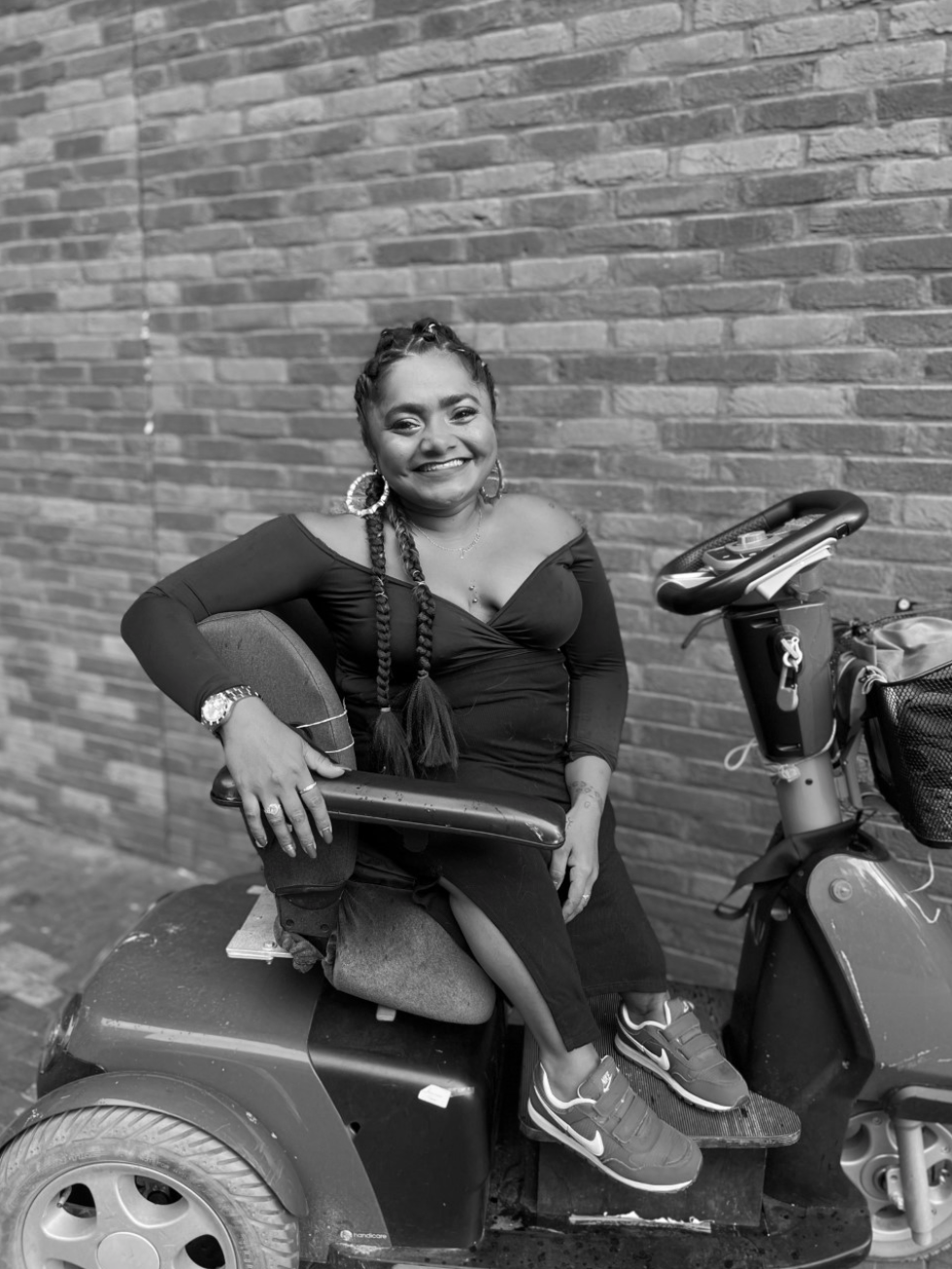
Jeanette Chedda is a disability advocate, speaker and model who represents the rolemodel she needed growing up. You can't be what you can't see is one of her favorite quotes. And representation matters is what she lives. With her presence in magazines, politics and activism she blows away the hetero cis, male, skinny, tall and able bodied standard. And that's long overdue. Especially in The Netherlands.
Khadija El Kharraz Alami,
Mathieu Charles
Anger as an inevitable emotion that does not need to be avoided. Anger as a political refuge in response to violence, exploitation and exclusion. Anger as a force to intimately sit with, stir and simmer in, create with, change from.
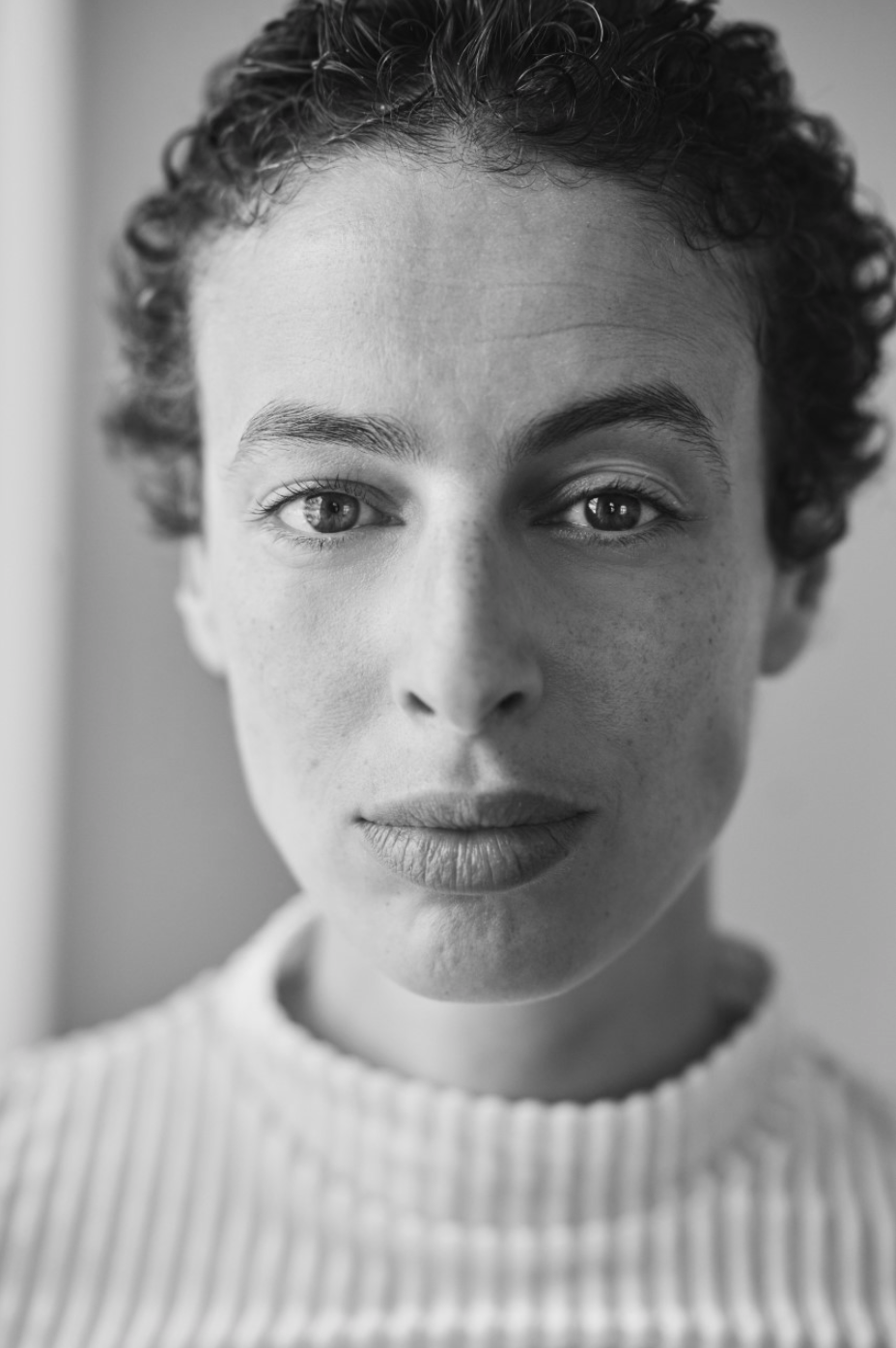
Performers, artists and researchers Mathieu Charles and Khadija El Kharraz Alami each work from an embodied understanding of anger. In Fanon Mixtape and AKOMFRAHDIO, Mathieu Charles is driven by anti-colonial desire. In Nu Ben ik Medea and The Waves, Khadija El Kharraz Alami explicitly addresses the ways in which her body, voice and story are erased. Anger about the white, patriarchal society entangles with dreams of decolonial, queer futures.
Khadija El Kharraz Alami graduated from HKU Theater School in 2014. As a performer she received amazing reviews and prizes for a lot of her performances, especially for her international acclaimed solo performance NU BEN IK MEDEA, which she made together with production company Productiehuis Theater Rotterdam. She performed for the National Theater The Hague, with Theatre National de Strasbourg and the Thalia theater. On television she starred in Dutch series like Black Widow as Aisha and in the series Zuidas as Yasmina. Afterwards she starred as one of the leads in Urszula Antoniak's new feature film Splendid Isolation, that had its international première at IFFR 2022. Most recently she landed a recurring role in the Belgian award winning series Roomies, created and directed by Kato de Boeck en Flo van Deuren. In oktober 2023 she will have an international tour of NU BEN IK MEDEA in Sweden.
Mathieu Charles (1984) is a Mauritian Creole / Belgian theatre maker and spoken word performer. He also gives creative writing workshops and lectures about the multidimensionality of (de)colonization. For the next two projects, he's working with de Brakke Grond, RIGHTABOUTNOWINC, Productiehuis Rotterdam and VierNulVier.
Ghaith Kween Qoutainy,
Sletlana,
Bebe Berat Bebek
Curated by Bebe Berat Bebek: What exactly happens when you are unable or unwilling to return to your country of origin? When you are physically in need of safety, of a safe place? Reaching to a state of safety comes with comfort for sure, differs at what cost and how, but at another angle it might bring guilt, shameful or condescending behaviours along the way.
SLETLANA/ Kostas Kharlamov (She/They/It) - Ukrainian performance artist, international radical Dragactivist, clubkid based in Amsterdam. Russian war didn’t begin for SLETLANA on February 2022 but In February 2014, when Russians occupied Crimea and Donbass region, where they were born and raised. So already in 2014 they became a refugee inside of their own country. In 2017 SLETLANA was one of the 6 Drag Queens who for the first time in history of Ukraine attended in Kyiv Pride March openly on the streets of Kyiv. In the same year 2017 after several queerphobic attacks and death threats they fleeing Ukraine they found their chosen family in Amsterdam at the House of Hopelezz. With extreme fetish looks and provocative shows, SLETLANA celebrates the radical freedom that was taken away from her. Their childhood was marked by protest, war, poverty and hunger, so this PIG is hungry! Hungry for your attention in order to turn into political provocation and into anything to destroy Putin’s regime.
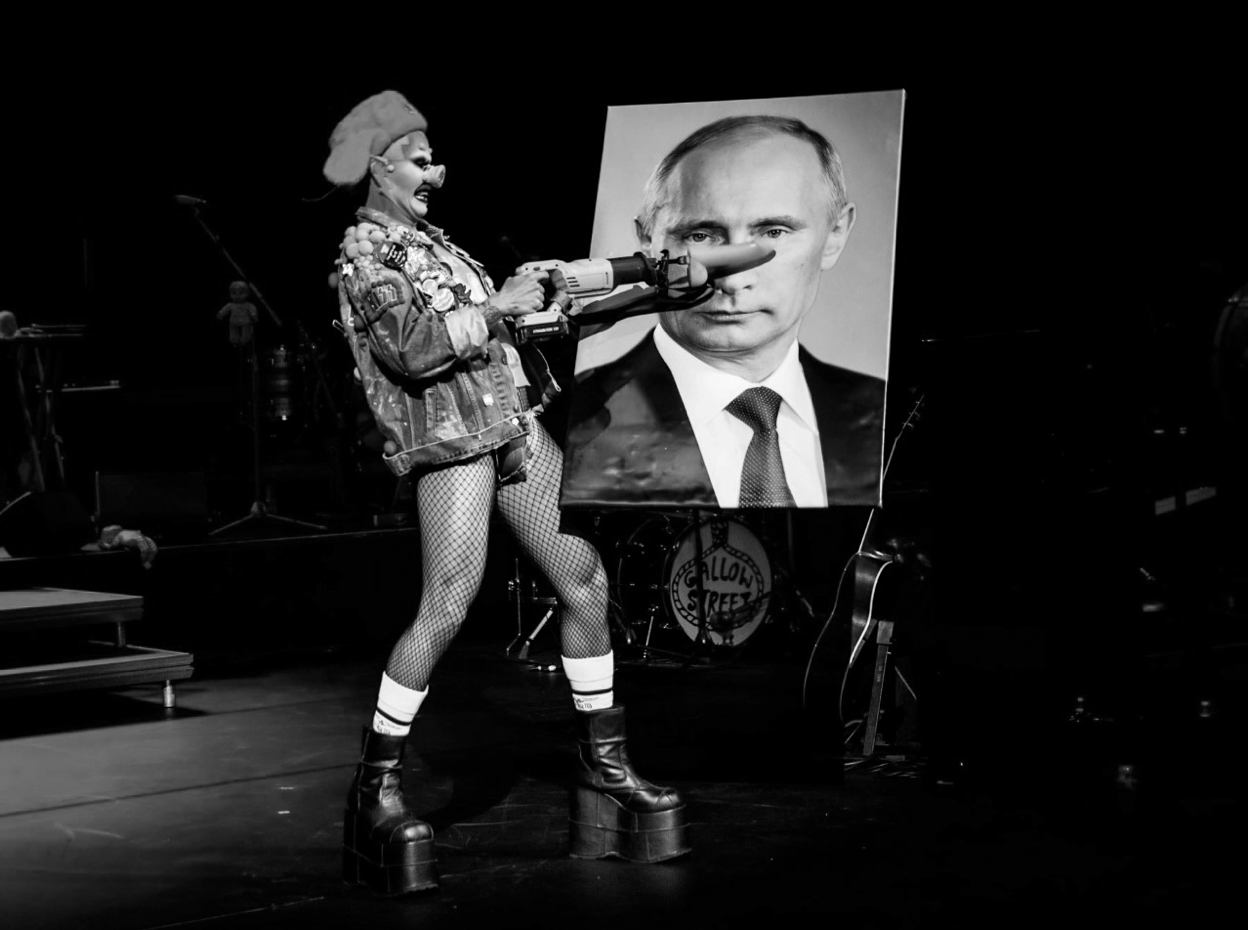
Ghaith Kween Qoutainy (Damascus, 1995) is a queer artist based in Amsterdam, Netherlands. Their practice is mainly concerned with the current – or always had been – active sociopolitical and cultural issues. Trained mainly as a sound artist at the Royal Conservatory in The Hague, Sound had been their departure point to arrive at a less medium-oriented practice and a more topic-concerned one. Their productions can be described as performative; as their treatment of medium is performative in itself, and research-based. In their work, you can expect confronting imagery -visual, visceral, and imaginary, narrative, language play, and critical political expressions. The latest of their work is a 39 min operatic queer torment composition, named NO. 69 or FUCK ME! IT IS YET ANOTHER LOUD FEMINIST or A DIRTY PAGE FROM THE DIARIES OF AN ALIEN. Earlier this year, they were selected as the Sound artist and composer of ‘‘Rock to jolt ][ stagger to ash’’, Alexis Blake's winner of Prix de Rome 2022.
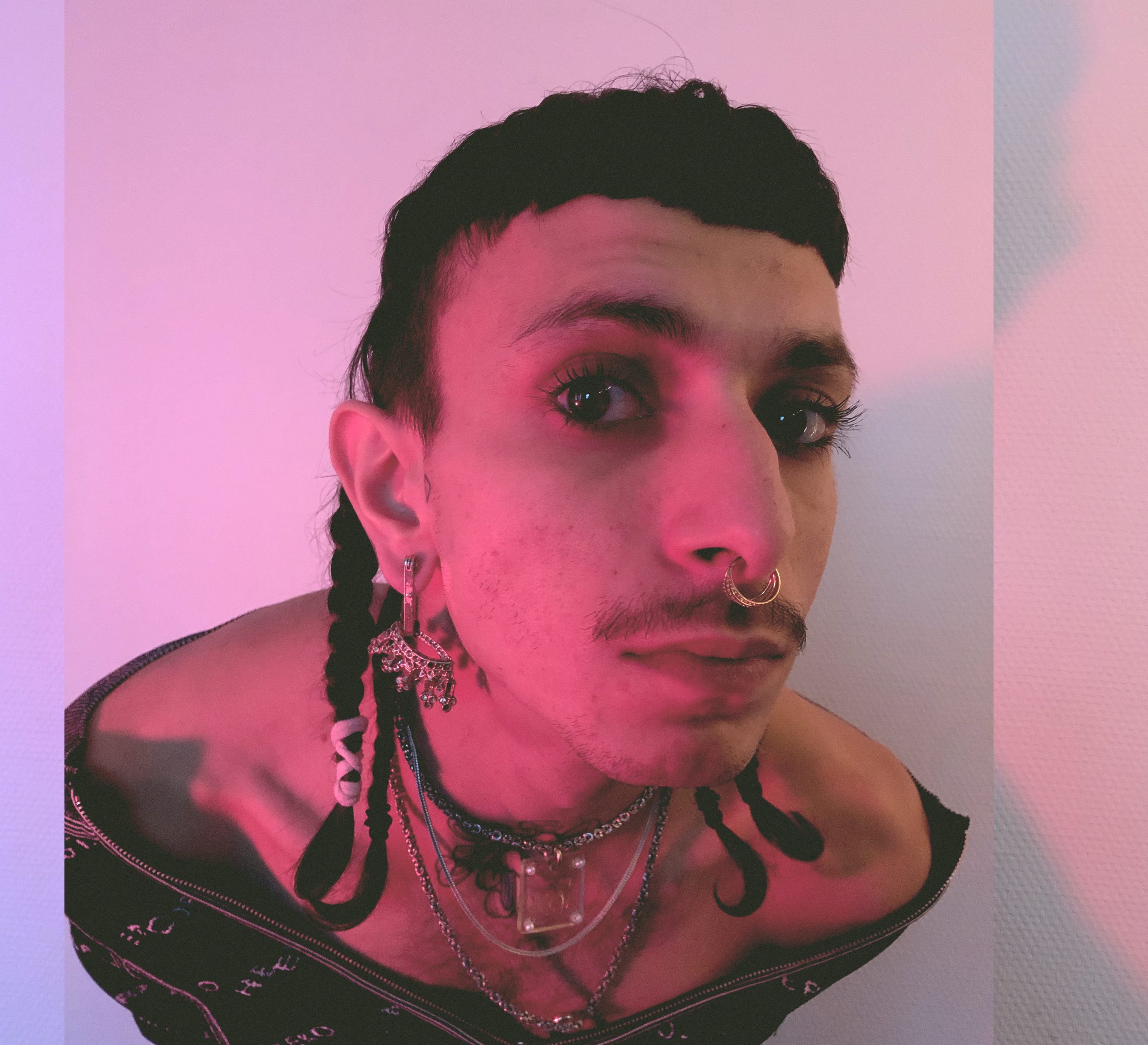
Bebe Berat Bebek is a trans non-binary actor, artist, creator, performer, organizer, serotonin source, social butterfly and a professional fat. Almost as a bridge between millennials and genZ they were born in the year '99 and were almost always out of the norms set by society. They were born and raised in Turkey but life led them to the Netherlands in 2020. While studying chemistry at Bogazici University, along with socio-political experience from their social circles, they started to be more visible as an activist and as a queer person. Within their previous experiences from theater, they started to lean more into performance art and drag and came across with other disciplines such as ceramic, painting, and embroidery. Having a curious mentality, they let themselves fly through any and every aspect of art and learning through different perspectives. Falling down so many times throughout their life, they're familiar with the feeling of the ground and now refusing to accept the norm of 'being obliged to suffer' towards queer people and they believe it is time to reflect, retake and recreate.
